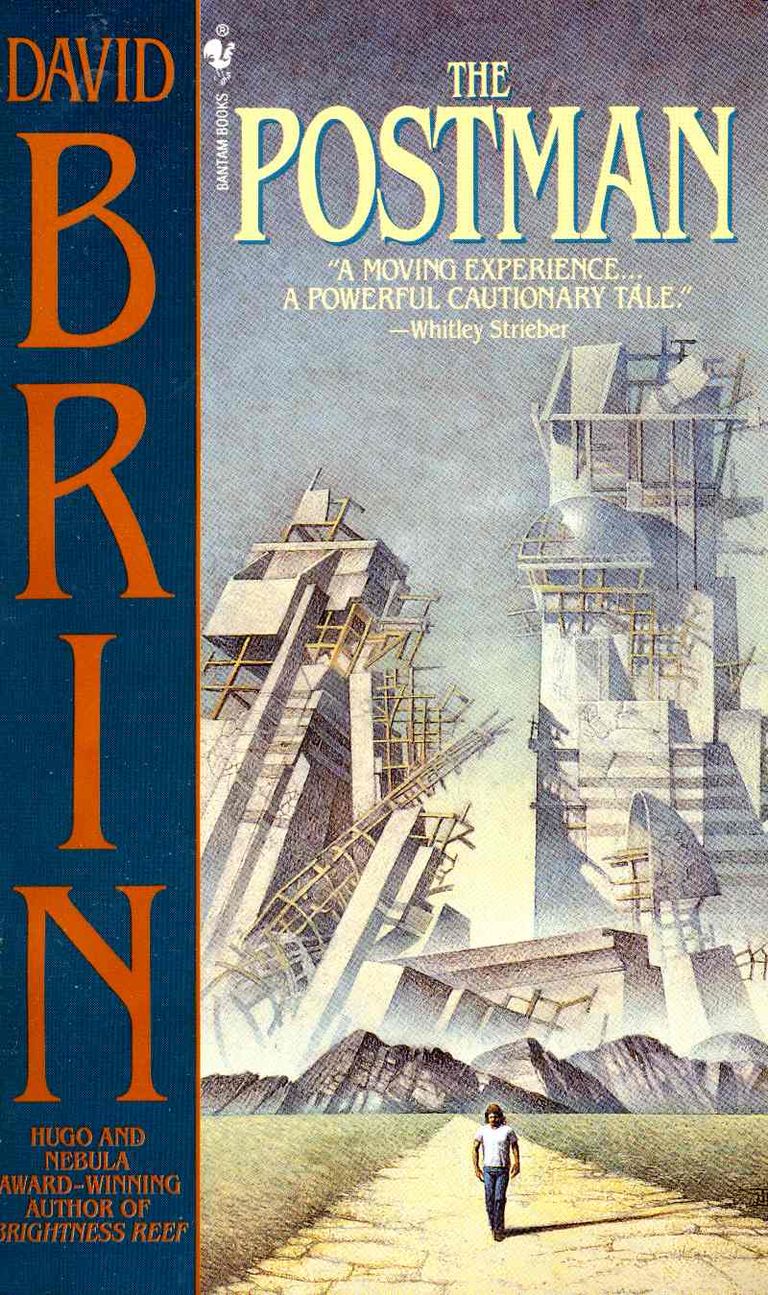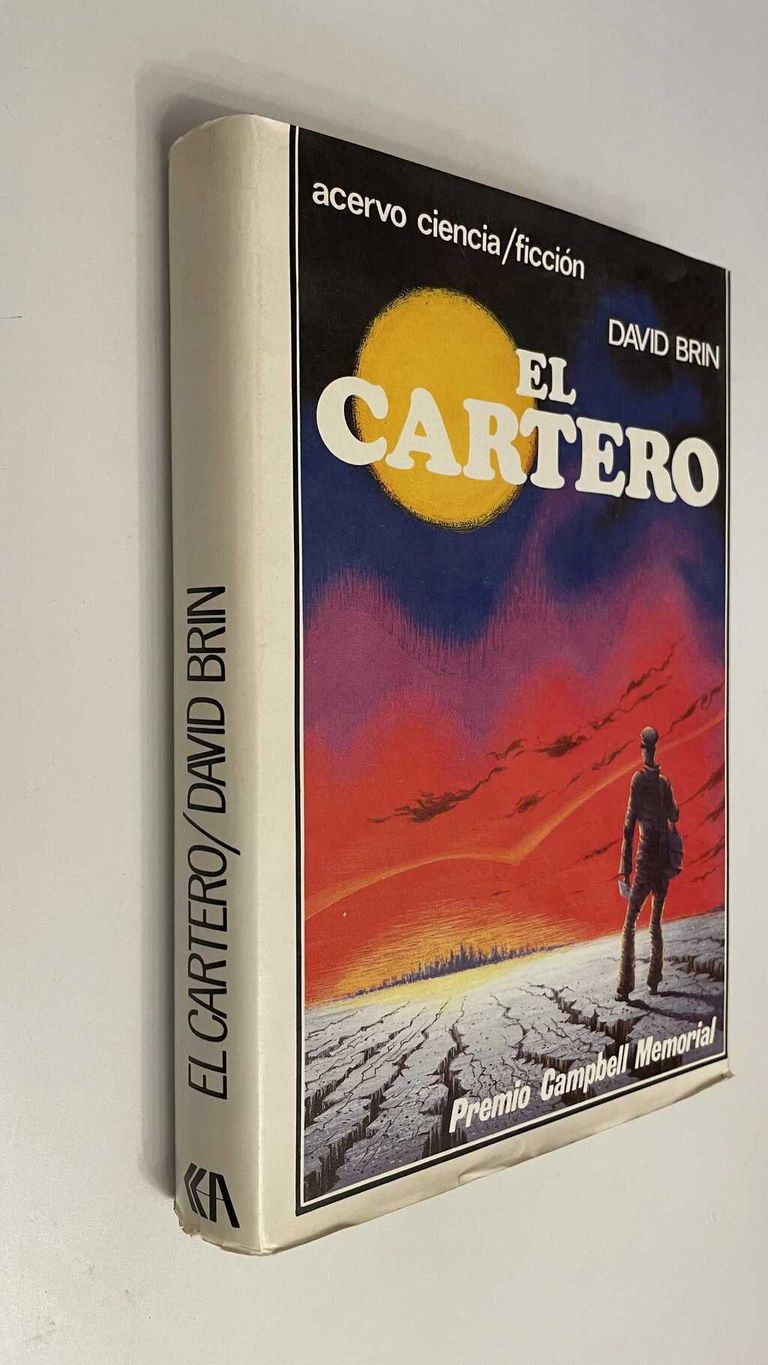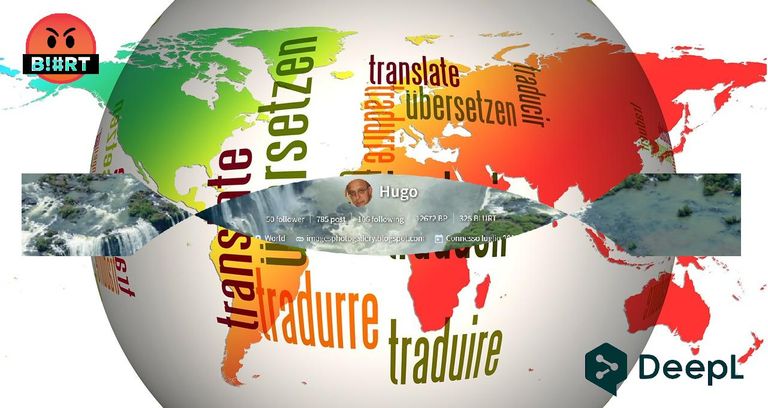
Among the ‘post-bomb chronicles’ this novel by David Brin, scientist and science fiction writer, already winner of the Hugo and Nebula Awards with ‘The Tides of Kithrup’ (1983), is particularly topical.
Already published by Editrice Nord under the title ‘The Symbol of Rebirth’, ‘The Man of the Day After’ reveals all the sinister flavour of the background against which the story unfolds, if we retranslate it into English: ‘The Day After’.
A post-apocalyptic parable with just the right amount of optimism, inspiring the film of the same name directed by and starring Kevin Costner.
Despite the post-apocalyptic setting, the novel is largely about civilisation and its symbols.
It is about a man who wanders through the desolate Oregon countryside in winter and finding a US Postal Service uniform containing some letters puts it on to keep warm, when he encounters the first town centres he claims to be a mail carrier for the ‘Restored United States of America’, actually delivering some of the letters and accepting new ones from the citizens. His postal service and his claims of the return of a central government give hope to people threatened by a murderous army.

Entre las "crónicas postbomba atómica" o "post-apocalisticas" esta novela de David Brin, científico y escritor de ciencia ficción, ya ganador de los premios Hugo y Nebula con «Las mareas de Kithrup» (1983), es particularmente actual.
Ya publicada por Editrice Nord bajo el título «El símbolo del renacimiento», «El hombre del día después» revela todo el sabor siniestro del trasfondo sobre el que se desarrolla la historia, si lo retraducimos al inglés: «The Day After».
Una parábola postapocalíptica con la dosis justa de optimismo, inspiradora de la película homónima dirigida y protagonizada por Kevin Costner.
A pesar del escenario postapocalíptico, la novela trata en gran medida de la civilización y sus símbolos.
Trata de un hombre que deambula por la desolada campiña de Oregón en invierno y, al encontrar un uniforme del Servicio Postal de EE.UU. con algunas cartas, se lo pone para calentarse. Cuando se encuentra con los primeros centros urbanos, afirma ser cartero de los «Estados Unidos de América restaurados», entregando en realidad algunas de las cartas y aceptando otras nuevas de los ciudadanos. Su servicio postal y sus afirmaciones sobre el regreso de un gobierno central dan esperanza a la gente amenazada por un ejército asesino.

A nuclear conflict, the USA reduced to a pre-industrial level with small communities of survivors of the long atomic winter trying to rebuild an acceptable form of coexistence and civilisation.
The villains on duty: the Holnists, a kind of military-feudal sect that aspires to violently subdue as much of the reborn world as it can. And within all this, ‘The Postman’, Gordon Krantz, a vagabond storyteller who, by wearing an old uniform recovered from the corpse of a postman, becomes a symbol of hope in the return of the ‘old world’, of the reconstituted United States.
Caught up in his own game, Gordon passes himself off as a postal inspector, and slowly rebuilds a structure of communication and waiting, even clashing with the Holnists in desperate resistance. A ‘people-builder’ then? In a way, yes: Gordon is clear about the criteria for rebirth: his own responsibility ("What about these foolish children?’ ‘Why is there no one somewhere to take responsibility for putting things right? I would help him..."), an authority to follow, an ever-growing community bond, a task (rebuilding the Postal System in a world of broken communications).
The limits of his action lie in the fact that it is an illusion that holds out hope (the reconstituted US does not exist, there is no Postal System in place), and that hope aggregates around institutions, as in a Middle Ages eager for imperial insignia to pay homage to for its own security. The novel was recently transposed into a film by Kevin Costner, who, however, conspicuously altered the story by getting bogged down in long-windedness and sentimentality. The original work is not free of the latter either, but it has a much more significant ideal horizon.
In a way, yes: Gordon is clear about the criteria for rebirth: first of all, one's own responsibility is required:
He would not return to Sciotown, where he had left the mailbags; all this was now a thing of the past. He began to unbutton his uniform jacket with the intention of dropping it in some ditch along the way... along with all the lies he had helped to create.
Spontaneously, a sentence echoed in his mind.
And now, who will take responsibility...?
What? He shook his head to clear his mind, but the words would not go away.
And now, who will take responsibility for these foolish children? (p.173)
After reading the book The Man of the Day After by David Brin, we invite you to leave a Review below: it will be useful for users who have not yet read this book and would like to have other people's opinions. The opinion on a book is very subjective, and for this reason reading any negative reviews should not hold us back from buying it. On the contrary, it should encourage us to buy the book quickly so that we can have our say and possibly contradict what others have commented on it, thus contributing to enriching the comments as much as possible and giving the online public more and more food for thought.

Un conflicto nuclear, los EE.UU. reducidos a un nivel preindustrial con pequeñas comunidades de supervivientes del largo invierno atómico que intentan reconstruir una forma aceptable de convivencia y civilización.
Los villanos de turno: los Holnistas, una especie de secta militar-feudal que aspira a someter violentamente a todo el mundo renacido que pueda. Y dentro de todo esto, «El Cartero», Gordon Krantz, un vagabundo cuentacuentos que, vistiendo un viejo uniforme recuperado del cadáver de un cartero, se convierte en un símbolo de esperanza en el retorno del «viejo mundo», de los Estados Unidos reconstituidos.
Atrapado en su propio juego, Gordon se hace pasar por inspector de correos y reconstruye poco a poco una estructura de comunicación y de espera, llegando incluso a enfrentarse a los holnistas en una resistencia desesperada. ¿Un «constructor de personas»? En cierto modo, sí: Gordon tiene claros los criterios para renacer: su propia responsabilidad («¿Qué pasa con estos niños tontos?» «¿Por qué no hay nadie en alguna parte que asuma la responsabilidad de poner las cosas en su sitio? Yo le ayudaría..."), una autoridad a la que seguir, un vínculo comunitario cada vez mayor, una tarea (reconstruir el Sistema Postal en un mundo de comunicaciones rotas).
Los límites de su acción residen en el hecho de que es una ilusión la que alberga la esperanza (los EE.UU. reconstituidos no existen, no hay Sistema Postal en marcha), y que la esperanza se aglutina en torno a las instituciones, como en una Edad Media ávida de insignias imperiales a las que rendir pleitesía por su propia seguridad. La novela fue llevada recientemente al cine por Kevin Costner, quien, sin embargo, alteró notablemente la historia al empantanarse en la prolijidad y el sentimentalismo. La obra original tampoco está exenta de esto último, pero tiene un horizonte ideal mucho más significativo.
En cierto modo, sí: Gordon tiene claros los criterios para renacer: en primer lugar, se requiere la propia responsabilidad:
No volvería a Sciotown, donde había dejado los sacos de correo; todo eso era ya cosa del pasado. Comenzó a desabrocharse la chaqueta del uniforme con la intención de dejarla caer en alguna zanja del camino... junto con todas las mentiras que había contribuido a crear.
Espontáneamente, una frase resonó en su mente.
Y ahora, ¿quién asumirá la responsabilidad...?
¿Qué? Sacudió la cabeza para despejar la mente, pero las palabras no desaparecían.
Y ahora, ¿quién se hará responsable de estos niños tontos? (p.173)
Después de leer el libro El hombre del día después de David Brin, te invitamos a dejar una revisión de abajo: será útil para los usuarios que aún no lo hayan leído y quieran conocer la opinión de otros. La opinión sobre un libro es muy subjetiva, por lo que leer alguna reseña negativa no debería echarnos para atrás a la hora de comprarlo. Al contrario, debería animarnos a comprar el libro rápidamente para poder dar nuestra opinión y, posiblemente, contradecir lo que otros han comentado sobre él, contribuyendo así a enriquecer al máximo los comentarios y a que el público en línea tenga cada vez más elementos de reflexión.

In the novel, humanity (or rather, the United States, we don't know what happened elsewhere) had survived the atomic war and the subsequent nuclear winter, but what finally brought it to the abyss was the supremacist philosophy of Nathan Holn, leader and spiritual father of the Holnists, who by advocating individualism, xenophobia, the law of the strongest and militarism succeeded where even radiation had failed.
The protagonist moves in this scenario, a poor man on the run who lives day by day, who one day finds a postal truck with the load still full. Wearing the clothes of the dead postman, he will be mistaken for the first symbol of the rebirth of the State, the postal service, and will find himself wandering around isolated communities telling the lie of a nation that is slowly getting back on its feet, and paradoxically starting to actually create it.
It came back to me these days with the question: are we ready for an apocalypse, as a community? Will solidarity be cut away by the contemptuous brand of “politically correct”, by those who consider any relationship not based on individualism and cynicism to be insincere and empty form? Who would we want at the intercom of our small community of survivors, a postman or a Holnist?

En la novela, la humanidad (o mejor dicho, Estados Unidos, no sabemos lo que pasó en otros lugares) había sobrevivido a la guerra atómica y al posterior invierno nuclear, pero lo que finalmente la llevó al abismo fue la filosofía supremacista de Nathan Holn, líder y padre espiritual de los Holnistas, que abogando por el individualismo, la xenofobia, la ley del más fuerte y el militarismo triunfó donde incluso la radiación había fracasado.
En este escenario se mueve el protagonista, un pobre prófugo que vive al día, que un día encuentra un camión de correos con la carga aún llena. Vistiendo las ropas del cartero muerto, será confundido con el primer símbolo del renacimiento del Estado, el servicio postal, y se encontrará vagando por comunidades aisladas contando la mentira de una nación que se recupera lentamente, y que paradójicamente empieza a crearla de verdad.
Volvió a mí estos días con la pregunta: ¿estamos preparados para un apocalipsis, como comunidad? ¿Será cercenada la solidaridad por la marca despectiva de lo «políticamente correcto», por quienes consideran insincera y vacía de contenido cualquier relación que no se base en el individualismo y el cinismo? ¿A quién querríamos al interfono de nuestra pequeña comunidad de supervivientes, a un cartero o a un holnista?




| Blogs, Sitios Web y Redes Sociales / Blogs, Webs & Social Networks | Plataformas de Contenidos/ Contents Platforms |
|---|---|
| Mi Blog / My Blog | Un Libro de Cabecera. |
| Mi Blog / My Blog | Rasetipi. |
| Red Social Twitter / Twitter Social Network | @hugorep |
Upvoted. Thank You for sending some of your rewards to @null. Get more BLURT:
@ mariuszkarowski/how-to-get-automatic-upvote-from-my-accounts@ blurtbooster/blurt-booster-introduction-rules-and-guidelines-1699999662965@ nalexadre/blurt-nexus-creating-an-affiliate-account-1700008765859@ kryptodenno - win BLURT POWER delegationNote: This bot will not vote on AI-generated content
Thanks.